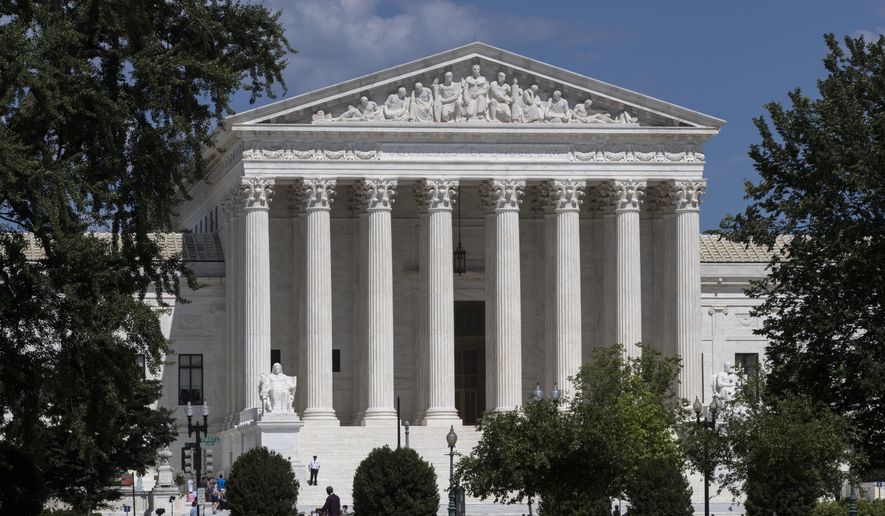The Supreme Court said Monday it will hear a challenge to California’s law requiring pro-life pregnancy counseling centers to also tell women about options for abortion, in a move opponents said amounts to a violation of free speech rights.
California’s Reproductive FACT Act requires pregnancy clinics to post a message directing their patrons to government offices for taxpayer-subsidized abortions.
A Woman’s Friend Pregnancy Resource Clinic and Alternative Women’s Center said they are pro-life, and requiring them to tell women about abortion violates the First Amendment.
“A Woman’s Friend’s position is that compelled speech is even more onerous than censorship,” the clinics said in the petition asking the court to hear the challenge. “By forcing one to communicate a message contrary to conviction, compulsory speech constitutes an assault on freedom of conscience.”
The justices accepted the case without comment.
The 9th U.S. Circuit Court of Appeals upheld the California law, but other federal appeals courts have invalidated related measures, creating the kind of dissonance that often prompts the justices to take up a case.
Hawaii and Illinois have enacted statutes similar to the one in California, which requires pregnancy clinics to post a sign that reads: “California has public programs that provide immediate free or low-cost access to comprehensive family planning services (including all FDA-approved methods of contraception), prenatal care, and abortion for eligible women. To determine whether you qualify, contact the county social services office at [insert the telephone number].”
Clinics that fail to provide the message to visitors face a $500 fine for the first offense and $1,000 for each subsequent offense.
California says its law is different than others that have been struck down, saying it doesn’t back any option but only makes more information available.
The state said the law was needed because pro-life crisis pregnancy centers “frequently provide women with medically inaccurate information.”
In drawing that conclusion, the legislature cited a 2011 report by the University of California, which said community pregnancy clinics rely in large part on volunteers rather than medically trained staff and don’t provide information on abortion services.
“California’s law seeks to ensure that pregnant women have access to information that is relevant to the variety of health decisions they face,” the state said in its brief.
But Kevin Theriot, senior counsel for Alliance Defending Freedom, said forcing pro-life clinics to promote the very act they oppose is “unthinkable.”
“Information about abortion is just about everywhere, so the government doesn’t need to punish pro-life centers for declining to advertise for the very act they can’t promote,” said Mr. Theriot.
The March for Life and other pro-life groups welcomed the Supreme Court’s review.
“We hope the Supreme Court can put an end to these unwarranted free speech assaults,” said Ashley McGuire, a senior fellow with The Catholic Association, calling the laws “harassment from the abortion industry.”
Democratic California Assemblymembers David Chiu and Autumn Burke, who sponsored the state law, said it should be upheld.
“California has a longstanding history of protecting and upholding a woman’s constitutional right to choose. The Reproductive FACT Act continues that legacy by ensuring that women can make reproductive choices based on information that is scientifically accurate and timely,” said Mr. Chiu.
Ms. Burke said that “the FACT Act is common sense, just like it’s common sense to have that medical facility inform you if they meet basic licensing standards for the state.
“If you provide medical services in the State of California you are going to do it for the health and welfare of Californians — women’s health care should not be political,” she said.
• Bradford Richardson can be reached at brichardson@washingtontimes.com.
• Alex Swoyer can be reached at aswoyer@washingtontimes.com.




Please read our comment policy before commenting.